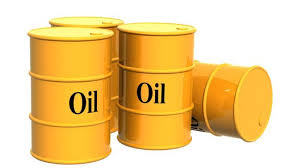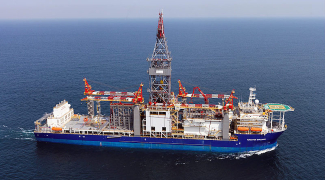04 January 2012, Sweetcrude, LAGOS – The Director of Lagos Business School, Prof Pat Utomi, has denounced the Federal Government imposition of collective tax on Nigerians in the guise of deregulation of the prices of Premium Motor Spirit (PMS).
Prof Utomi, who was the presidential candidate of Social Democratic Mega Party (SDMP), said the Federal Government has sold a dummy to Nigerians that the increase in the pump price of fuel was a product of its policy on deregulation “when in actual fact the government is using it as a disguised taxation on petroleum, to raise revenue as it is still business as usual in the process of importation and distribution of fuel by cronies and lackeys of government.”
Prof Utomi said a genuine process of deregulation of the petroleum sector will entail transparent process of privatisation and divestment of government interest, encouragement of new players, especially those that want to set up private refineries, and restriction of governments role to regulation and collection of taxes.”
According to Prof Utomi, “what we have today is the Federal Government hiding behind PPPRA to use its cronies that import petroleum products from outside the country to bring in the product, and sell to Nigerians at a price that is collectively agreed between the importers and the PPPRA to the detriment of the already impoverished Nigerians”.
He added: “What the Federal Government is selling to Nigerians in the guise of deregulation is a tax on fuel because it wants to generate and put more revenue in the hands of government at the expense of the people”.
He said for the nation to experience economic progress, there must be a balance between the critical sectors of the economy namely the public sector, the business sector, foreign investment and household or personal finance.
None of these sectors, he stated, must develop at the expense of the other, recalling that the inability of household to spend in the United States led to the meltdown in 2008.
According to him, “there is a complete misunderstanding of the process of deregulation and what government intends to achieve from imposing a tax on price of petrol. In other countries where such policy is implemented, the idea is usually to encourage people to use public transport like the train system, and discourage them from using their SUVs that are known for their high consumption of petrol”.
He said the philosophy behind the setting up of the Kolade Committee “is to borrow on the moral authority of Dr. Christopher Kolade and the credibility of other Nigerians to pacify Nigerians to accept the new policy, if there is deregulation, we do not need the Kolade Committee to manage the proceeds of subsidy Reinvestment and Empowerment Programme”.
He further stated: “There is no deregulation in what the government has done, rather, it is imposition of taxes on petroleum products because some faceless individuals rather than market forces, are the ones to determine the prices of petroleum products”.
He said government has not addressed the issue of improving the capacity of domestic refining of petroleum product which will create jobs and economy of scale. It has not addressed the issue of cutting down on the irresponsible spending of government, which includes keeping 11 air crafts in presidential fleet, when the entire country has no national carrier.
Prof. Utomi said if there is proper deregulation, corporate organisations and individuals will be encouraged to build refineries, “but there are some vested interests that would not want to see the country refine petroleum locally.”
According to him, if there is proper deregulation, prices will go up in the interim, but competition will drive the price down, but what is happening now is government trying to use power to force a fuel tax on Nigerians. I can assure you that in six months time we will come back to the issue of subsidy on fuel.




